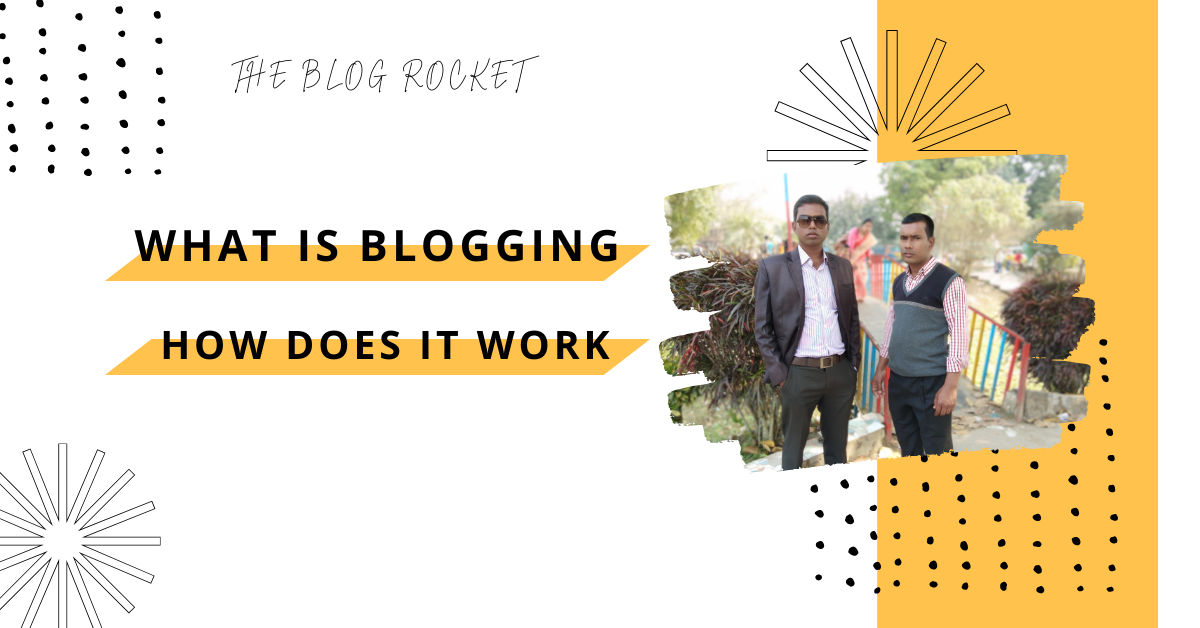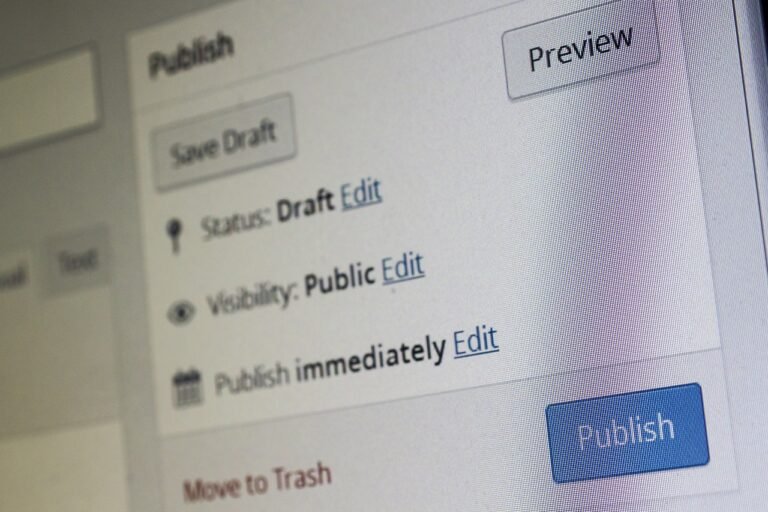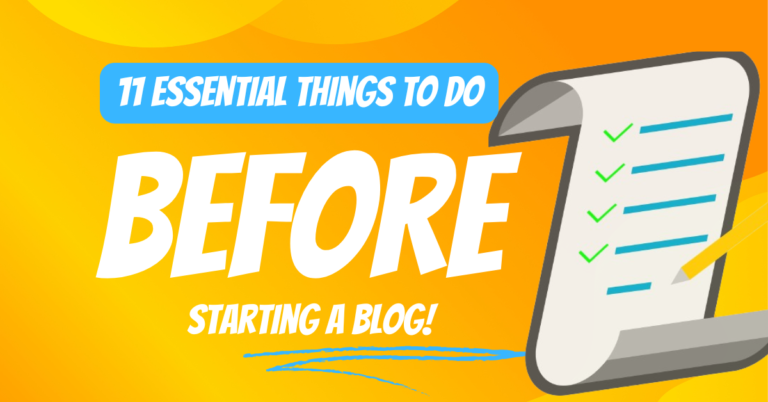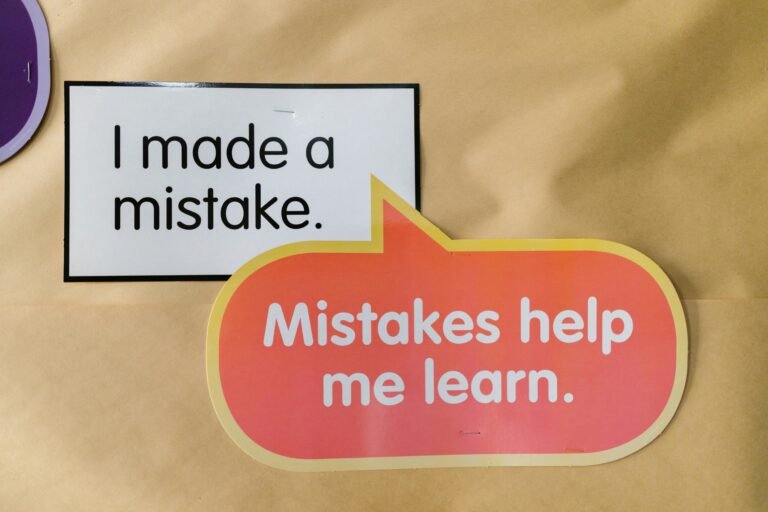What is blogging? How does Blogging work? Can people make money from Blogging? Want to start a blog in 2024? This article has everything you need to know! It’s easy to understand and covers all the essentials, including how to turn your passion into a profitable venture.
Disclaimer: Some links on this page are affiliate links. If you click through and purchase, I may earn a commission at no additional cost to you. I only recommend products I use and believe in.
Hello, fellow bloggers!
I’m thrilled you’re here. I’m Saiful Islam, and I’ve been a blogger for more than four years.
When I started blogging, I had no idea what I was doing. My only tools were:
- A keyboard.
- A great deal of passion.
- A hazy notion of what I wanted to communicate with the world.
My blog now receives thousands of monthly readers. In addition, I earn a living doing it!
If you are new to Blogging, you may feel overwhelmed.
In this guide, we’ll dive into what blogging is and how it works, exploring the essential steps to help you start a blog in 2024. Whether you’re wondering how blogging works or if blogging is still relevant, you’re in the right place.
Let’s explore the fantastic realm of blogging and its operation.
Contents
- 1 What Is Blogging? Understanding How Blogging Works
- 1.1 DEFINITION OF BLOG, BLOGGING & BLOGGER
- 1.2 WHAT IS THE DIFFERENCE BETWEEN A BLOG AND A POST?
- 1.3 What is the difference between a blog and a vlog?
- 1.4 HOW IS A BLOG DIFFERENT FROM A WEBSITE?
- 1.5 WHAT IS THE MAIN PURPOSE OF A BLOG?
- 1.6 How can one make money starting a blog?
- 1.7 HOW MUCH MONEY CAN YOU MAKE WITH A BLOG?
- 2 HOW DOES BLOGGING WORK?
What Is Blogging? Understanding How Blogging Works
DEFINITION OF BLOG, BLOGGING & BLOGGER
Ok, let’s start from the very beginning. What do you mean by ‘blog,’ ‘blogger,’ and ‘blogging’?
What Is A Blog?
A blog can be compared to an online journal or bulletin board where individuals regularly express their ideas and knowledge. Usually written in an informal tone, these entries—referred to as posts—appear in reverse chronological order, with the most recent ones at the top. Blogs can cover every subject, from news and professional perspectives to personal interests and experiences. People, companies, or organizations can operate them; many let readers contact the blogger and submit comments.
What Is A Blogger?
A blogger, a content creator for websites or online journals, is a significant figure in the online world. They publish content, usually in the form of written works, on any topic, from personal hobbies and experiences to professional expertise and news. Bloggers aim to inform, entertain, or engage their readers, and their content can include photos, videos, and links alongside written text. They shape the online content landscape and make a significant impact.
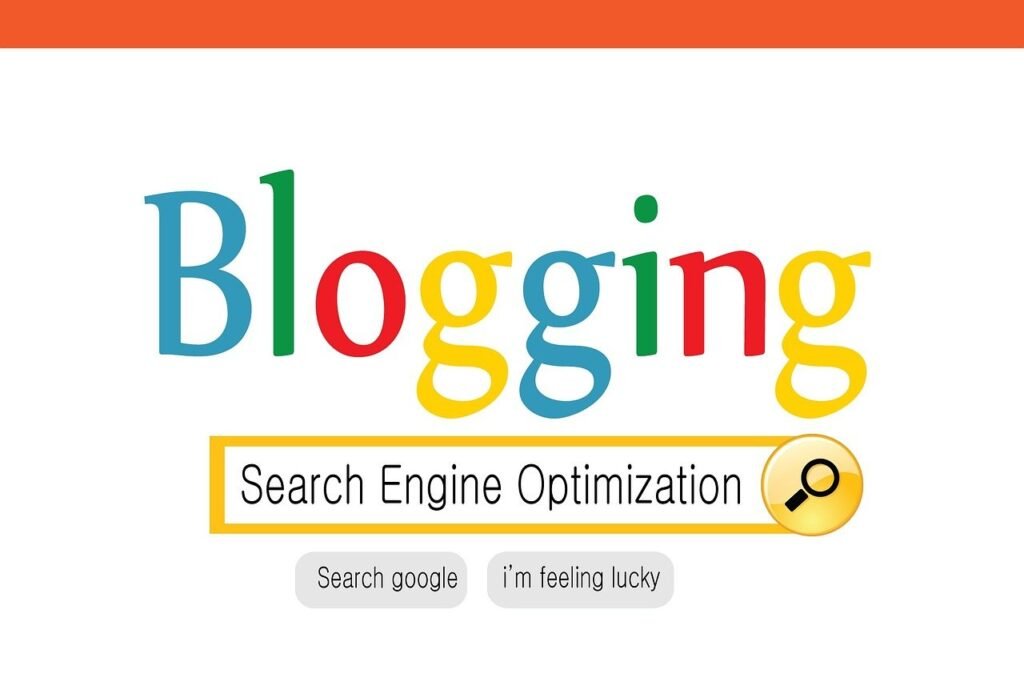
What Is Blogging?
So, what exactly is blogging?
A blog is essentially an online journal or instructional website that presents content in reverse chronological order, with the most recent entries showing up first. It’s a forum where authors or groups of writers can express their opinions on specific topics.
How blogging works is simple: bloggers post content in reverse chronological order, making recent posts appear first. This format allows bloggers to share their thoughts and knowledge on various topics. As blogging evolved from early ‘weblogs,’ it has become a significant tool for personal and professional expression.
People began blogging to share their lives and ideas online in the late 1990s. Because they resembled online records of information shared, they were referred to as “weblogs.” Weblogs eventually became just “blogs,” and the rest is history. Blogging has developed into a versatile medium that people and companies can use to reach a wide range of audiences.
WHAT IS A BLOG POST?
A blog post is like a single article on a website and is typically located in the blog section. These website updates cover various topics and can be informative, like news articles, or more casual and conversational. Blog posts are typically written by an individual or group and arranged with the newest posts appearing first, like a digital journal. They can include pictures, videos, and other fun stuff to keep things interesting.
What is Blog Traffic?
Blog traffic refers to the number of visitors who come to your blog. For a beginner blogger, it’s crucial to understand that traffic can come from various sources, such as search engines, social media, direct visits, and referrals from other websites. Monitoring traffic helps you gauge your blog’s popularity and effectiveness. Tools like Google Analytics can provide detailed insights into where your visitors are coming from, which posts are popular, and how long they stay on your site.
What Is Web 1.0?
Web 1.0, the first Internet generation, spanned from the early 1990s to the early 2000s. It featured static web pages, primarily read-only content, and limited interactivity. Users could browse information but had minimal engagement, with websites resembling digital brochures. Key characteristics included basic HTML coding, simple design, and a focus on delivering text and images. Unlike today’s dynamic, user-driven web, Web 1.0 lacked social media, streaming, and advanced multimedia capabilities. It laid the foundation for the Internet, offering the initial global connectivity and information-sharing platform but with a straightforward, one-way communication model.
What is Blog Web 2.0?
Blog Web 2.0 refers to the evolution of blogs with interactive and social features that enhance user engagement.
For a beginner blogger, this means your blog isn’t just a static webpage. Instead, it includes comments, social media integration, user-generated content, and interactive widgets. Web 2.0 technologies make sharing posts easy, connecting with readers, and participating in online communities.
Tools like WordPress, Blogger, and social media platforms allow for easy content creation and sharing, fostering a more dynamic and interconnected web experience.
Understanding Blog Web 2.0 is crucial for a beginner blogger because it lays the foundation for modern blogging practices and tools.
What Is Web 3.0
Web 3.0, also known as the Semantic Web, is the next evolution of the Internet. It aims to create a more intelligent, connected, decentralized web experience. Unlike Web 2.0, which focuses on user-generated content and social networking, Web 3.0 leverages technologies like blockchain, AI, and machine learning to enable secure, peer-to-peer interactions and personalized experiences. This new web emphasizes data privacy, allowing users to own and control their data. Key features include semantic search, decentralized applications (dApps), and smart contracts. This transformation promises to revolutionize how we interact with the digital world, making it more accessible, transparent, and user-centric.
What is blogging 4.0?
Blogging 4.0 represents the latest evolution in Blogging, where traditional text-based posts are integrated with advanced technologies and multimedia to create richer, more interactive experiences. Unlike earlier versions, Blogging 4.0 leverages tools such as artificial intelligence (AI), augmented reality (AR), and voice search to enhance content creation and user engagement. This means bloggers can use AI to generate ideas, improve SEO, and personalize content for their readers more effectively.
One key aspect of Blogging 4.0 is the seamless incorporation of various media types. Bloggers now frequently use video, podcasts, interactive graphics, and even virtual reality elements within their posts to create a more immersive experience. This multimedia approach caters to different preferences and learning styles, making the content more accessible and engaging to a broader audience.
Interactivity is another cornerstone of Blogging 4.0. Modern blogs often feature interactive elements like quizzes, polls, and embedded social media feeds that encourage readers to participate and engage with the content actively. This level of interaction keeps readers on the site longer and fosters a sense of community and loyalty among the audience.
Finally, Blogging 4.0 emphasizes the importance of mobile optimization and speed. With most users accessing content via smartphones and tablets, blogs must be fast, responsive, and easy to navigate on smaller screens. This means implementing speedier loading times, intuitive design, and mobile-friendly features to ensure a seamless user experience, regardless of the device used.
WHAT IS THE DIFFERENCE BETWEEN A BLOG AND A POST?
The world of blogs can sometimes lead to confusion with terms like “blog,” “post,” and “blog post.” Let’s break it down to make things clear.
Imagine a blog as an entire website, like an online magazine. This website contains various articles that you can browse through. Each article is called a “post” or a “blog post.” The blog is the big picture, while the individual articles are the smaller pieces that make up the whole thing.
It’s a common mistake to say things like “I wrote 3 blogs this week” when referring to blog posts. A more accurate phrase would be, “I wrote 3 blog posts this week.” Similarly, instead of saying, “I read your latest blog,” you could say, “I read your latest blog post.”
To illustrate this, consider the website you’re on right now. This entire website is my blog, and the article you’re reading is a blog post titled “What is a blog and how does it work?” I hope this clarifies the difference between these terms!
What is the difference between a blog and a vlog?
A blog (short for “weblog”) is a type of website or part of a website where written content is regularly updated. Blogs are typically run by individuals or small groups and often reflect personal opinions and experiences or provide information on specific topics. They consist of text-based entries, known as “posts,” usually displayed in reverse chronological order. Many blogs also include images, links to other websites, and an option for readers to leave comments.
A vlog (short for “video blog”) is similar to a blog, but the content is primarily in video format. Instead of writing text posts, vloggers create videos uploaded to video-sharing platforms like YouTube, Vimeo, or personal websites. Vlogs can cover many topics, including personal life updates, tutorials, reviews, or travel experiences. Like blogs, vlogs often encourage viewer interaction through comments and social media.
The critical difference between blogs and vlogs lies in their primary medium of content delivery: blogs focus on written content, while vlogs center around videos. This distinction influences how the audience consumes the content—reading versus watching—and often requires different skills and tools for content creation. Blogs may attract readers who prefer detailed, text-based information, whereas vlogs appeal to viewers who enjoy visual and auditory content.
HOW IS A BLOG DIFFERENT FROM A WEBSITE?
Think of a website as your digital home. It’s your space on the Internet to showcase anything you like, whether a business, a portfolio, or a hobby. This “home” can have many rooms, each serving a different purpose.
A blog is like a lively bulletin board in your website’s living room. It’s where you share fresh content regularly, like news, updates, opinions, or exciting stories related to your website’s central theme. Blog posts are typically arranged with the newest on top, keeping things fresh for visitors.
Here’s a table summarizing the key differences:
| Feature | Website | Blog | |
| Purpose | Showcase information, products, or services | Share regular updates and engage with an audience | |
| Content Style | Static, informative, formal | Dynamic, engaging, conversational | |
| Update Frequency | Unfrequent updates | Frequent new content (daily, weekly, etc.) | |
| Content Focus | Overall theme of the website | Specific topics related to the website’s theme |
Analogy: Photographer’s Website
Imagine a photographer’s website. The main website pages might showcase their portfolio, services, and contact information (like a brochure). This is the main “house.” The website could contain a blog section where the photographer shares photography tips, behind-the-scenes glimpses, or announcements about new workshops (like the bulletin board).
Confusing Case: Blogs within Websites
Some websites, like the photographer’s example, incorporate a blog section. This can be a great way to keep visitors engaged and returning for more. While this section is technically a blog, the website might serve a broader purpose. The photographer wouldn’t necessarily call themself a “blogger” in this case.
I hope this explanation clarifies the distinction between blogs and websites!
WHAT IS THE MAIN PURPOSE OF A BLOG?
At the heart of it all, blogs serve various purposes, but informing and connecting with readers is a common thread.
These days, making money motivates many bloggers. They might achieve this through advertising, selling products or services, or attracting sponsorships. But here’s the good news: financial drive often goes hand-in-hand with a genuine passion for helping others. Many bloggers desire to share their knowledge, advice, and experiences to make a positive impact.
Some bloggers use their platforms for specific causes. They might be on a mission to spread awareness, advocate for change, or rally support for a particular issue.
The original purpose of blogs – as online diaries – is still around, though perhaps not as prevalent. Some people still enjoy using blogs for personal reflection and storytelling, which can be a great way to connect with like-minded individuals.
So, no matter the specific goal, blogs offer a powerful tool for individuals and organizations to create a space for communication, share valuable information, and build communities around shared interests.
How can one make money starting a blog?
Blogs can be more than just online journals; they can be powerful tools for generating income. Here are five of the most popular ways bloggers turn their passion into profit:
1. Traditional Advertising: Partnering for Display Ads
Imagine your blog as a prime billboard location. Many bloggers partner with advertising networks to display ads on their websites. These ads can be banners, text boxes, or even videos. Typically, bloggers earn money based on impressions (how many people see the ad) or clicks (how many people click on the ad). The more traffic your blog attracts, the more revenue you can generate through advertising.
READ MORE >>>
2. Affiliate Marketing: Earning Commissions by Recommending Products
This strategy involves promoting products you love and trust within your blog posts. You’ll include special affiliate links that track when someone clicks through and makes a purchase. If a reader clicks on the link and buys the product, you earn a commission from that sale. It’s a win-win: you recommend great products and get rewarded for sharing your expertise.
READ MORE >>>
3. Sponsored Posts: Crafting Content for Brands
Have you ever read a blog post raving about a particular company or product? That might be a sponsored post. Businesses collaborate with bloggers to create content that showcases their brand. You’ll be compensated (usually a flat fee) to write a review, highlight a product launch, or craft a story that aligns with your blog’s niche and the brand’s message.
READ MORE >>>
4. Selling Products: Turning Your Knowledge into Profit
Many bloggers use their expertise to create products to sell directly to their audience. This could be anything from ebooks and online courses to printables and templates. For example, a cooking blogger might sell a recipe ebook, while a fitness blogger could create a workout video series. The possibilities are endless!
READ MORE >>>
5. Offering Services: Leveraging Your Skills for Client Work
Your blog can be a springboard for offering valuable services. Many bloggers use their platforms to showcase their skills and attract clients. Some popular service options include virtual assistant work (managing social media, emails, etc.), freelance writing or editing, photography services, consulting, and coaching.
READ MORE >>>
Remember, building a successful blog that generates income takes time and dedication. But with the right strategies and high-quality content, you can turn your blog into a thriving online business.
HOW MUCH MONEY CAN YOU MAKE WITH A BLOG?
The amount of money you can make with a blog can vary widely, but it has the potential to be a source of income! There’s no one-size-fits-all answer, but some bloggers bring in six figures or more monthly. On the other hand, some new blogs might not see any income for a while.
The good news is there are ways to increase your chances of earning. Picking a niche you’re passionate about and focusing on creating high-quality content that resonates with your audience is a significant first step.
Different strategies for monetizing your blog include advertising, affiliate marketing, and selling your products. The more you build your audience and establish yourself as an authority in your niche, the more earning potential your blog will have.
READ MORE >>>

HOW DOES BLOGGING WORK?
At its heart, Blogging is effortless. How does blogging work? First, a blogger creates a website. They design that website to look visually attractive to their readers. Ensuring it’s easy to navigate and pleasing to the eye. Once the site is set up, the blogger writes and publishes articles, known as ‘blog posts,’ on their website.
However, if you want to make money from your blog, there are additional steps you will need to take.
Building a successful blog for income goes beyond just writing great content. How does blogging work for generating revenue? You’ll need to actively promote your posts, understand SEO to attract Google traffic, consistently update your blog, and develop strategies to turn those views into profit.
READ MORE >>>
DO YOU HAVE TO BE ‘TECHIE’ TO BE A BLOGGER?
Not! You need not be a ‘techie’ or a ‘computer whizz’ to be a blogger. If you can buy things online, send emails, and create an essential Word document, you have enough technical knowledge to start a blog.
Starting a blog is more about sharing your voice and ideas with the world than mastering technology. With the tools and resources available today, anyone with basic internet skills can become a successful blogger.
So, don’t let the fear of technology hold you back—start your blogging journey today!
WHAT ARE THE BENEFITS OF HAVING A BLOG?
Sure, Blogging can be a fantastic business venture; that’s the primary motivation for many. It grants you the freedom and flexibility most dream of, like being your boss, choosing your projects, and setting your work schedule.
But the beauty of Blogging goes far beyond just income. It’s a powerful creative outlet, a space to share your passions, thoughts, and ideas with the world. As you consistently deliver valuable content, you can become a recognized authority or “thought leader” in your field. This can boost your confidence and equip you with new technical skills in writing, content creation, and web management.
But the possibilities extend even further. Blogging can open doors you never imagined. It could lead to exciting media appearances, collaborations with fascinating brands, sponsored content opportunities, book deals, and even once-in-a-lifetime experiences.
In short, Blogging offers many benefits, from financial rewards to personal growth and exciting new opportunities.
READ MORE >>>
HOW MUCH DOES IT COST TO START A BLOG?
Launching a blog is a super affordable and risk-free way to start an online business. It typically costs around $100 to get your blog up and running, a fraction of the investment needed for traditional companies.
While you can start a blog for free, investing a little can significantly enhance your blog’s look, functionality, and, ultimately, its chances of success. The good news is that even with premium themes, plugins, and hosting, you’re still looking at a very reasonable cost compared to other business ventures.
READ MORE >>>
How do you start your blog?
Are you feeling inspired to start your blog? Great news: I’ve got tons of free tips to get you going!
I recommend you start with these three articles:
If you learn best with a clear roadmap, this might be perfect for you. My Newsletter, Profitable Blogging Tips, provides step-by-step guidance on everything you need to know.
This could be a great way to launch your blog quickly and get it on the right track to making money!
Now that you know what blogging is and how it works, you’re ready to start your own blog and explore the endless possibilities that come with it.
In conclusion, understanding what blogging is and how it works is essential for anyone looking to start or improve their blog. Whether you’re curious about how blogging works in practice or wondering if blogging is still relevant in 2024, the key is to stay updated with current trends and adapt your strategies accordingly.
Happy blogging!
Join my newsletter…
#
#
#
Stay in the loop!
Want the latest updates on Blogging and productivity? Here are two options:
Follow me on social media: I am active on Twitter, Facebook, and Instagram.
Subscribe to Blogging Tips: Get my free weekly newsletter with Blogging and Blog Management Tips delivered straight to your inbox.

